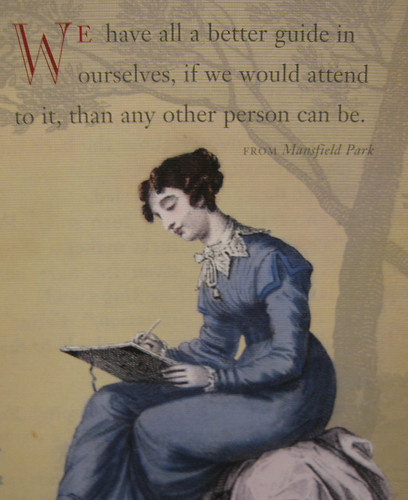Have you recovered from the election? We have (barely). To help you out, here are some interesting and ridiculous words we’ve learned from TV.
battleground state
Anderson Cooper: “Is it all going to be about voter turnout [in Virginia]?”
Commentator: “Yes, here and other battleground states.”
The Colbert Report, November 5, 2012
A battleground state is also known as a swing state or purple state, as opposed to a blue or red state, which have “a majority of its electorate voting for,” respectively, the Democratic or Republican “candidate in a U.S. presidential election.”
A battleground state “is a state in which no single candidate or party has overwhelming support in securing that state’s electoral college votes.” The term originated around 1832, says the Oxford English Dictionary (OED), while swing state is much newer, coming about around 1964.
celtuce
Chef: “This is celtuce. . . .A cross between celery and lettuce. It’s really popular in Asia.”
“Brooklyn,” No Reservations, November 6, 2012
Celtuce is “a type of lettuce. . .valued especially for its edible stems.”
chum
Liz: “What the hell, Jack? I thought you said I was your chum.”
Jack: “You are my chum. The bait I throw in the water to attract the big fish.”
Liz: “Dammit, second meaning!”
“Unwindulax,” 30 Rock, October 24, 2012
Chum originally referred to “one who lodges or resides in the same chamber or rooms with another; a room-mate: especially applied to college students.” The word is an alternative spelling of cham, according to the Online Etymology Dictionary, which is “short for chamber(mate), typical of the late-17c. fondness for clipped words.” By extension, chum refers to “an intimate companion; a crony.”
The “second” meaning, “bait, consisting usually of pieces of some oily fish,” originated later, around 1857, and comes from the Scottish chum, “food.”
die dreaming
Guide: “We’re drinking orange juice with Carnation milk. We call it die dreaming.”
“Dominican Republic,” No Reservations, October 29, 2012
Die dreaming, which translates from the Spanish morir soñando, is “a popular beverage of the Dominican Republic. . .usually made of orange juice, milk, cane sugar, and chopped ice.”
green on blue
Jon Stewart: “Now [the situation in Afghanistan has] become more dangerous. This whole idea of what they call green on blue violence, which is Afghani troops embedded with American troops, turning on [the American troops].”
The Daily Show with Jon Stewart, November 5, 2012
Green on blue, says OxfordWords Blog, “is modeled after an earlier phrase, blue on blue, referring to inadvertent clashes between members of the same side in an armed conflict.” The colors don’t have to do with uniform hue but with standardized military symbols, where “blue is used for friendly forces, red for hostile forces, green for neutral forces, and yellow for unknown forces.”
light-fingered
Constable: “They all believe that Sister Monica Jane is known to them as, and I quote, light-fingered.”
“The Adventures of Noakes and Browne,” Call the Midwife, November 4, 2012
Light-fingered in this context means “dexterous in touching and taking; thievish; addicted to petty thefts: applied particularly to pickpockets.” The phrase originated in the 1540s.
lurker
Scientist: “Take away their arms so they can’t grab you. Take away their jaws so they can’t bite you. Take away their ability to eat, they lose interest in doing so. . . .They become docile, in a sense.”
Governor: “Lurkers.”
Scientist: “Mm, docile. . . .Or lurkers, whatever you like.”
“Walk with Me,” The Walking Dead, October 28, 2012
A lurker is “one who lurks, hides, or keeps out of sight,” as well as “an impostor; a cheap quack.” Lurker comes from lurk, which is probably Scandinavian in origin. In internet slang, a lurker is “a person who reads discussions on a message board, newsgroup, chatroom, file sharing, social networking site. . .but rarely or never participates actively.”
prefab
Sister: “Those prefabs are only ever expected to last four or five years.”
“We Are Family,” Call the Midwife, October 28, 2012
Prefab, short for prefabricated, or manufactured in advance, refers to “something prefabricated, especially a building or section of a building.” According to the OED, prefab refers specifically, in British English, to “a light, often single-storey house of the kind built in large numbers as temporary housing during and after the Second World War (1939–45).”
punditocracy
Stephen Colbert [to statistician Nate Silver]: “Those of us in the punditocracy make our bread and butter by telling people what the truth is as we see it from our gut.”
The Colbert Report, November 5, 2012
Punditocracy is “a group of pundits who wield great political influence.” The word is a blend of pundit, “a source of opinion; a critic,” and –cracy, “rule of government by.” While –cracy is Greek in origin, pundit comes from the Sanskrit paṇḍitaḥ, “learned, scholar.”
sea moss
Anthony Bourdain: “Sea moss is a mix of powdered, dried, deep water seaweed, milk, cinnamon, and other spices, legendary for one reason.”
Michael K. Williams: “Very potent. He’s gonna make a baby tonight.”
“Brooklyn,” No Reservations, November 6, 2012
Sea moss is a “seaweed shake that comes from Trinidad and is said to help men retain their virility.”
shants
Claire: “You finally found something less cool than those pants that zip off into shorts.”
Phil: “My shants, which you have been gunning for since day one.”
“Yard Sale,” Modern Family, October 31, 2012
Shants is a blend of shorts and pants. Other sartorial blends include skort, jeggings, and jorts.
unwindulax
Fan: “Jenna is playing a Today Show in a couple of days so we’re just camping out and unwindulaxing.”
“Unwindulax,” 30 Rock, October 24, 2012
Unwindulax is a blend of unwind and relax. The figurative meaning of unwind, “to become free of nervous tension,” originated around 1958, says the OED. Relax meaning “to relieve from attention or effort” is much older, according to the OED, attested to the 17th century.
Unwindulax is a play on chillax, a blend of chill and relax.



